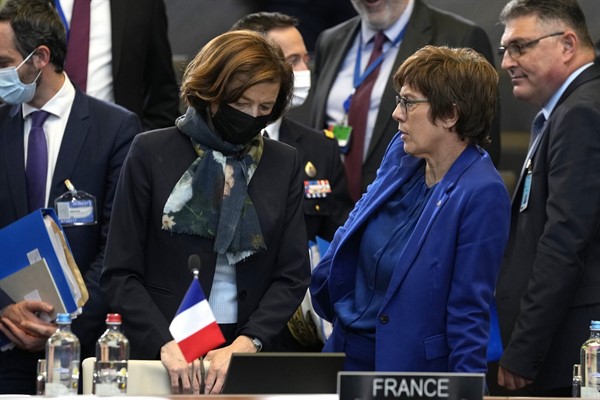The NATO defense ministers who met yesterday and today in Brussels had a long list of issues to discuss, from the alliance’s role in confronting a rising China to its plans for countering a resurgent Russia. But NATO is also confronting more fundamental questions about its identity that have taken on greater resonance in recent months. Prominent among those questions is what Europe can and should do for itself to provide for its security and defense.
The idea of European strategic autonomy, or reduced dependence on the United States for security, is currently associated with French President Emmanuel Macron, one of its most vocal advocates these days. Although the concept dates back to France’s 1994 defense white paper, interest in it has been revived lately because of developments that have left Europeans uncertain about Washington’s reliability.
This became particularly evident during the presidency of Donald Trump, who openly derided NATO. That prompted Macron to warn that Europeans would “no longer be in control of [their] destiny” unless they got serious about defending themselves. Trump’s February 2020 agreement with the Taliban—which included a reduction of U.S. troops in Afghanistan to 8,600 within 135 days and the removal of the rest, allied and coalition forces included, over the next 14 months—also perturbed Europeans, who felt their views on the timeline seemed not to matter.

